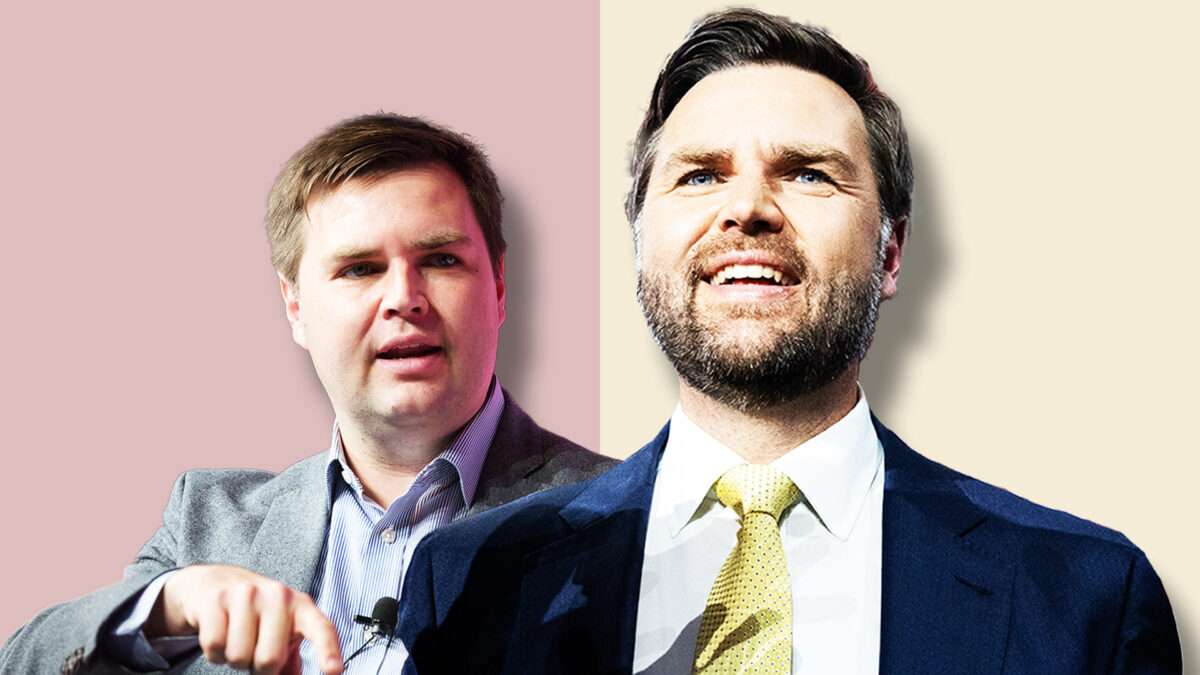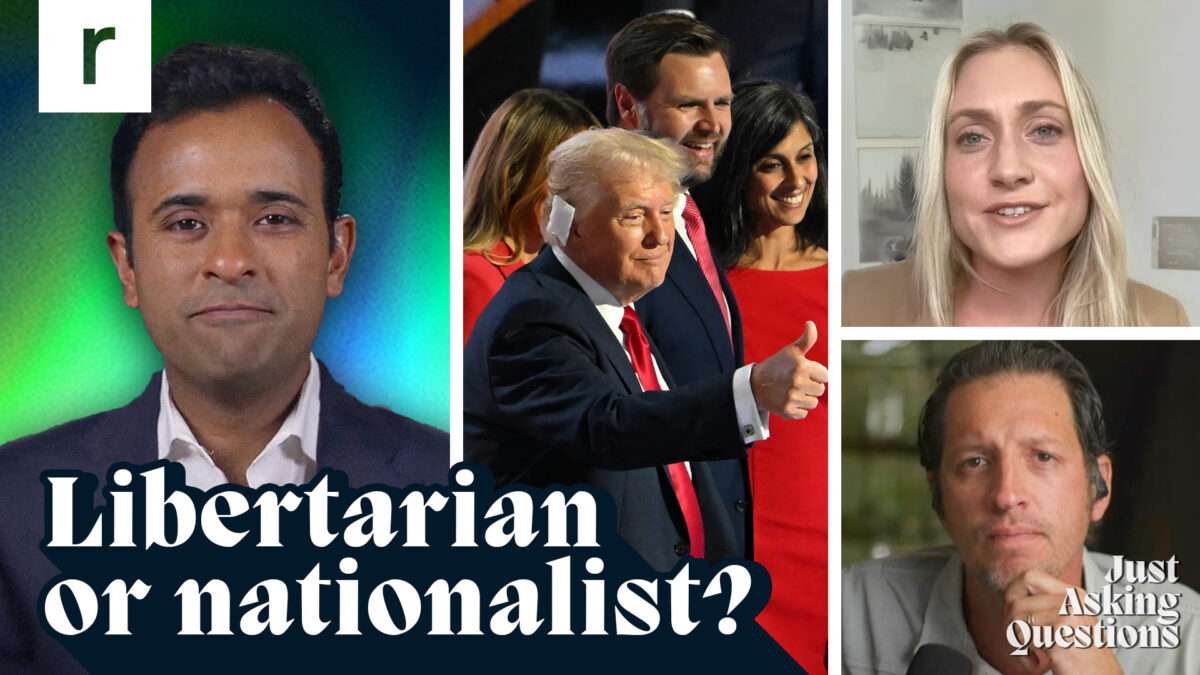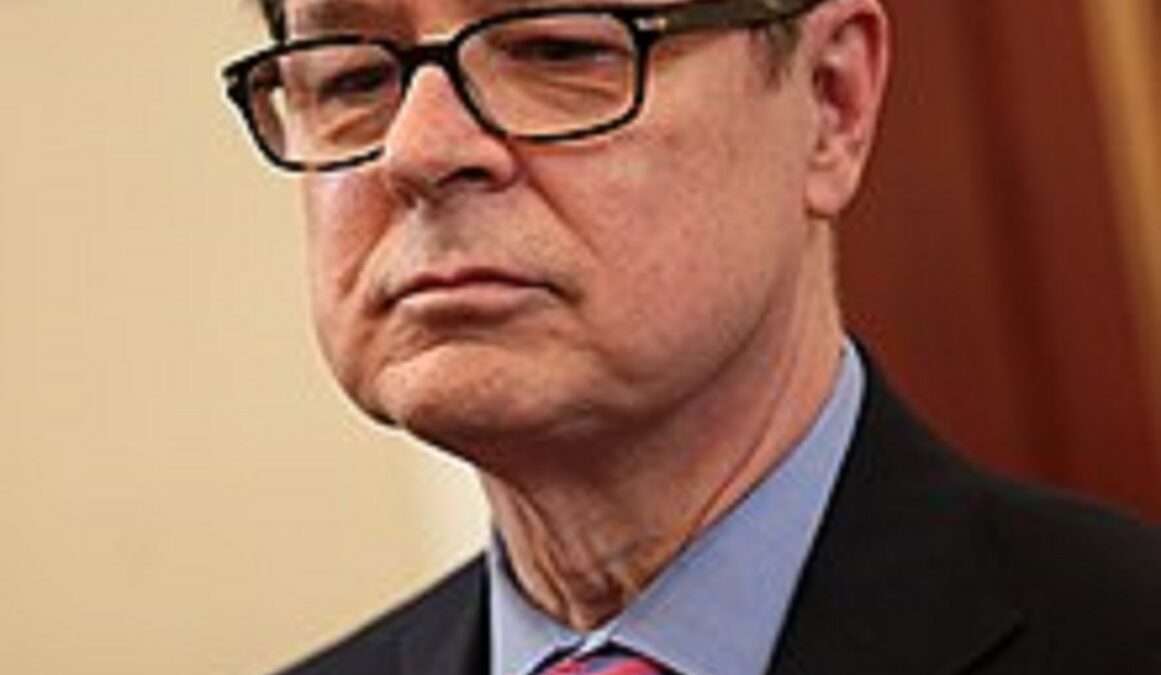Longtime Cato Institute vice president David Boaz passed away on June 7. He was one of the most effective and principled advocates for libertarianism in our time. In his last major public speech, delivered at a Students for Liberty conference in February, David cautioned us against excessive pessimism, but also warned about the dangerous rise of illiberal nationalism as a major threat to freedom around the world. The speech was transcribed by Andy Craig, and is reprinted here with permission:
Too often, libertarians (and also conservatives) believe that we are actually on the road to serfdom. I want to give you a more optimistic view along with a warning and a challenge. I'm going to start with some history.
For millennia, with few exceptions, the world was marked by despotism, slavery, hierarchy, rigid class privilege, and literally no increase in the standard of living over hundreds of years. And then, the Western world experienced the Enlightenment, a new perspective on the world based on reason, science, a belief in progress, and freedom.
And the ideas about freedom eventually came to be known as liberalism. Human rights, markets, property rights, religious toleration, the value of commerce, the dignity of the individual. Life, liberty and the pursuit of happiness. Peace, human flourishing.
That brought about what Deirdre McCloskey calls the Great Fact of human history, the enormous and unprecedented growth in living standards, starting around 1800 in the Western world. And these ideas spread to more aspects of society and more parts of the world. They gave Europe a century of peace and progress, from roughly 1815 to 1914. The Great Fact spread from Northwestern Europe and America to the rest of Europe, to Latin America, to parts of Asia.
Liberal ideas were never perfectly realized. When they faded in the late 19th century, we got World War I, trade war, the Great Depression, and World War II, and some countries endured the horrors of communism and national socialism. Mercantilism, cronyism, bigotry and discrimination, political murders, authoritarianism, plagued and still plague parts of the world.
Even in our own country, in my own lifetime—and the interesting thing is most of these things are no longer true in your lifetime—but in my country, in my lifetime, we lived with military conscription, 90% marginal income tax rates, wage and price controls, restricted entry to transportation and communications, indecency laws, and Jim Crow.
It's a lot of change. Progress has been happening. After World War II, a renewed commitment to free trade, international rule of law, and constitutional liberal democracy brought about another long period of great power peace and prosperity. And the spread of property rights and market institutions to China, India, Latin, America, and even Africa has brought more than a billion people out of extreme poverty in just 25 years.
More and more of the world is respecting equal rights for people regardless of color, gender, religion, sexuality or language. Equal rights based on our common humanity. It was our liberal ideas that brought that about, and we should take pride in that. Of course, now we're more likely to call those liberal ideas libertarian, but our job is not done. We face the rise of illiberalism on both left and right in the United States and around the world with threats to liberty, democracy, trade, growth, and peace.
And so it remains to us to defend the constitutional order of our republic, to remind people over and over of the wonders that America has produced, how rare freedom and abundance have been in the world and the rules that are essential to their continuance.
There was a book some years ago called All I Really Need To Know I Learned in Kindergarten. Well, everything you need to know about politics, in a way, you learn in kindergarten, the fundamentals of freedom, the fundamentals of civilization: Don't hit other people, don't take their stuff, and keep your promises. If you apply those rules, you'll have a prosperous and peaceful society.
One more idea you wouldn't think needed to be said, is we libertarians, like most of us Americans, are liberals. Liberalism is a universal creed. We believe that all people are endowed with inalienable rights, that among these are life, liberty, and the pursuit of happiness. Not just some people. That idea is incompatible with political ideas based on 'blood and soil' or treating people differently because of race or religion.
So when you see self-proclaimed freedom advocates talking about blood and soil or helping a would-be autocrat overturn an election, or talking about LGBT equality as degeneracy, or saying we shouldn't care about government racism against Black people, or defending the Confederacy and the cause of the South, or joining right-wing culture wars and supporting politicians who want to use the state to fight their enemies, or posting Holocaust jokes and death threats on Twitter, recognize that for what it is. Speak up, fight back, tell people that's not America and it's certainly not libertarianism.
And while it's not actually un-libertarian to be anti-vaccine, it's stupid, and I'd rather recruit smart people. Can you believe that there are people who think an environmental extremist, tax-hiking, gun-grabbing, big spender who's also an anti-vaccine crank, would make a good Libertarian Party candidate? Meanwhile, before I move on, I just want to remind you, taxation is theft.
We libertarians spend a lot of time talking about what we're against, high taxes, unnecessary wars, crony capitalism, over-criminalization, treating people unequally because of who they are. And we should talk more about what we're for. As our Cato Institute mission statement says, individual rights, limited government, free markets and peace. But more than that, we're for those things because they help us achieve abundance and social harmony and human dignity and human flourishing. We want everyone to flourish, to be free, to pursue happiness in his or her or their own way.
I'm always happy to quote George Washington's letter to the Newport Synagogue. It's a little bit of archaic language. "It is now no more that toleration is spoken of as if it was by the indulgence of one class of people that another enjoyed the exercise of their inherent natural rights. For happily, the government of the United States gives to bigotry, no sanction to persecution, no assistance."
Libertarian ideas are radical, yet deeply rooted in Western tradition, and we have a record to be proud of. We've been fighting ignorance, superstition, privilege and power for several centuries, and it is to those ideas and that struggle that we owe the best parts of our civilization. More often than libertarians often recognize, we live in a world of freedom and progress, imperfect freedom and imperfect progress to be sure, but real. We have extended the promises of the Declaration of Independence, life, liberty and the pursuit of happiness — I say that a lot, I like that phrase — to people to whom they had long been denied.
Around the world, more people in more countries than ever before in history enjoy religious freedom, personal freedom, democratic governance, the freedom to own and trade property, the chance to start a business, equal rights, civility, respect, a higher standard of living, and a longer life expectancy, and it is libertarian ideas and libertarian-minded people who have made that happen. We need to fight for those gains, especially here in America where the right and the left are battling over who gets to do the most to destroy liberty.
I was asked once by some skeptics what the most important libertarian accomplishment ever was. I thought for a moment and said the abolition of slavery. "Okay," they conceded. "Name another." Now, I thought if you had the abolition of slavery on your resume, you're ready to meet your maker. That's pretty good.
But I thought more carefully, and I said, bringing power under the rule of law. That was a revolutionary achievement. Constitutions, divided powers, consent of the governed, all of those things helped to constrain the natural human instinct to gain power over others. And constraining that instinct for power is our revolutionary achievement, but it's still incomplete.
It's what the Levellers and John Locke and the American Founders fought for, and the abolitionists. It's what the protesters in 1989 against communism fought for. It's what our friends in Russia and China and Egypt and Ukraine and Hong Kong fight for in challenging circumstances that we never face. It's what we fight for.
But nothing is guaranteed. Ideas we thought were dead are back. Socialism, protectionism, ethnic nationalism, anti-semitism. In what was once Ronald Reagan's party, we see people advocating something called national conservatism, which is old-fashioned, big government dressed up in new clothes. Protectionism, control of private enterprise, scapegoating of minorities.
They denounce the Enlightenment and liberalism. Some of them even advocate imposing a national religion. And that's why our job is not done. We now confront the rise of illiberalism on both left and right with threats to peace, liberty, democracy, trade and growth.
Our ancestors have faced similar challenges. Imagine the American Revolutionaries who thought they could take on the most powerful military in the world, and yet they dared and they won. Then they wrote a Declaration of Independence that is the most eloquent piece of libertarian writing in history, and they wrote a Constitution that did the things I'm talking about, putting constraints on power, dividing it between the three branches, dividing it between the two houses of Congress, dividing it between the states and the federal government. All of those kinds of things are classical liberal ideas that were first really brought forth here in America, and that's our heritage and that's our legacy.
But it keeps coming back. We also had the abolitionists who had to fight tyranny as well. There are some people who disparage talking about slavery. It's over, that's good, we should be proud of that. But we should also remember that when some people talk about the good old days, as if there was more freedom in the 19th century, when four million Americans were held in chattel slavery, held in bonds before the Civil War. So it was not exactly what you'd call a free society. And we could go through a lot of other things too, the restrictions on women's rights. God knows restrictions on gay rights wasn't even something people thought of, but people who were gay knew damn well they should keep it quiet.
Closer to our own time, in the 1940s, in the darkest days of war and a growing welfare state, three remarkable women stood up to challenge the establishment. Isabel Paterson, Rose Wilder Lane, and Ayn Rand, warned Americans that we were losing our founding values and freedoms, and they launched a movement. And some writers have said, "Why was it women who stood up? Where were the men? What were they doing?" Well, there were men. All three of those women wrote a book in 1943. In 1944, Hayek wrote The Road to Serfdom. So it wasn't just women, but we did have three founding mothers of the modern libertarian movement, and I think we don't make enough of that. We should have their pictures on everything.
I just read Tim Sandefur's book, Freedom's Furies, about these three women, and one of the things I kept noticing was everything he quotes from Isabel Paterson, it's like things we say today about big government. She anticipated it all, or maybe we got it all from her even though we don't know it. So that happened in the 1940s and they started a movement. In the 1970s, in the face of the government's three great accomplishments, Vietnam, Watergate, and stagflation, great scholars like Hayek and Friedman criticized the government's economic policies.
And along with some younger scholars, some of whom are now older scholars whose names you've heard, they changed them, and they launched another movement that restored a lot of American economic freedom. Not all of it, and some bad things kept happening, but we did make a lot of progress over the few years after that in repealing a lot of bad economic restrictions.
And now it's your turn to pick up the banner of liberty. Don't let it go. Fight illiberalism and authoritarianism wherever you find it. Extend liberty to more parts of the world and more parts of life. And make the 21st century the most liberal century yet. Thank you very much and good luck.
I don't fully agree with every point here. It's probably impossible to cover so much ground in so short a time without some oversimplification. But the core message is sound, and well-worth heeding.
Although we lack David's eloquence, Cato Institute scholar Alex Nowrasteh and I explained why the rise of nationalism is a major menace to liberty in somewhat greater detail in our recent National Affairs article, "The Case Against Nationalism."
No one person can replace David Boaz. But we can, as he said, "pick up the banner of liberty" and work to raise it to new heights.





